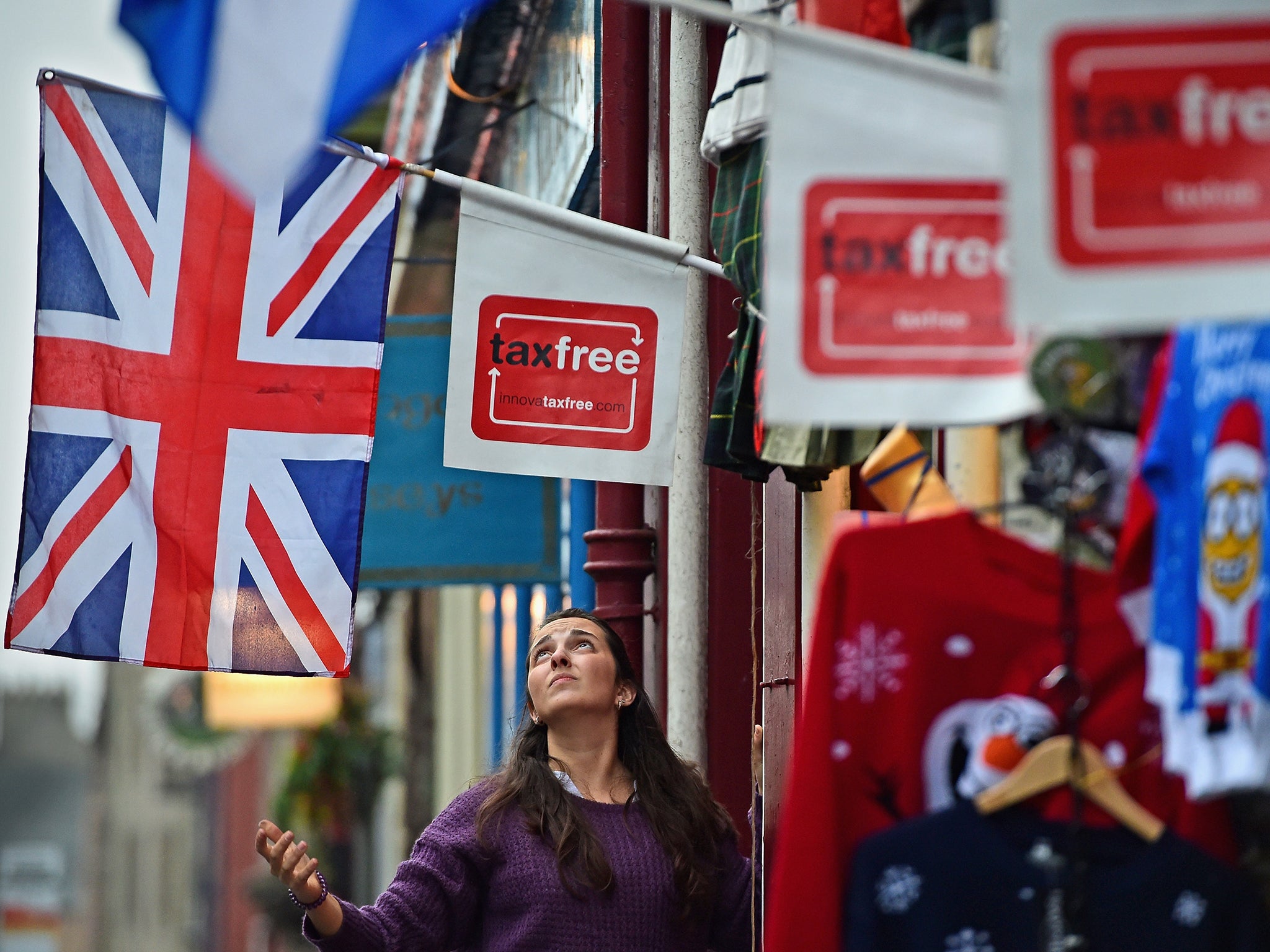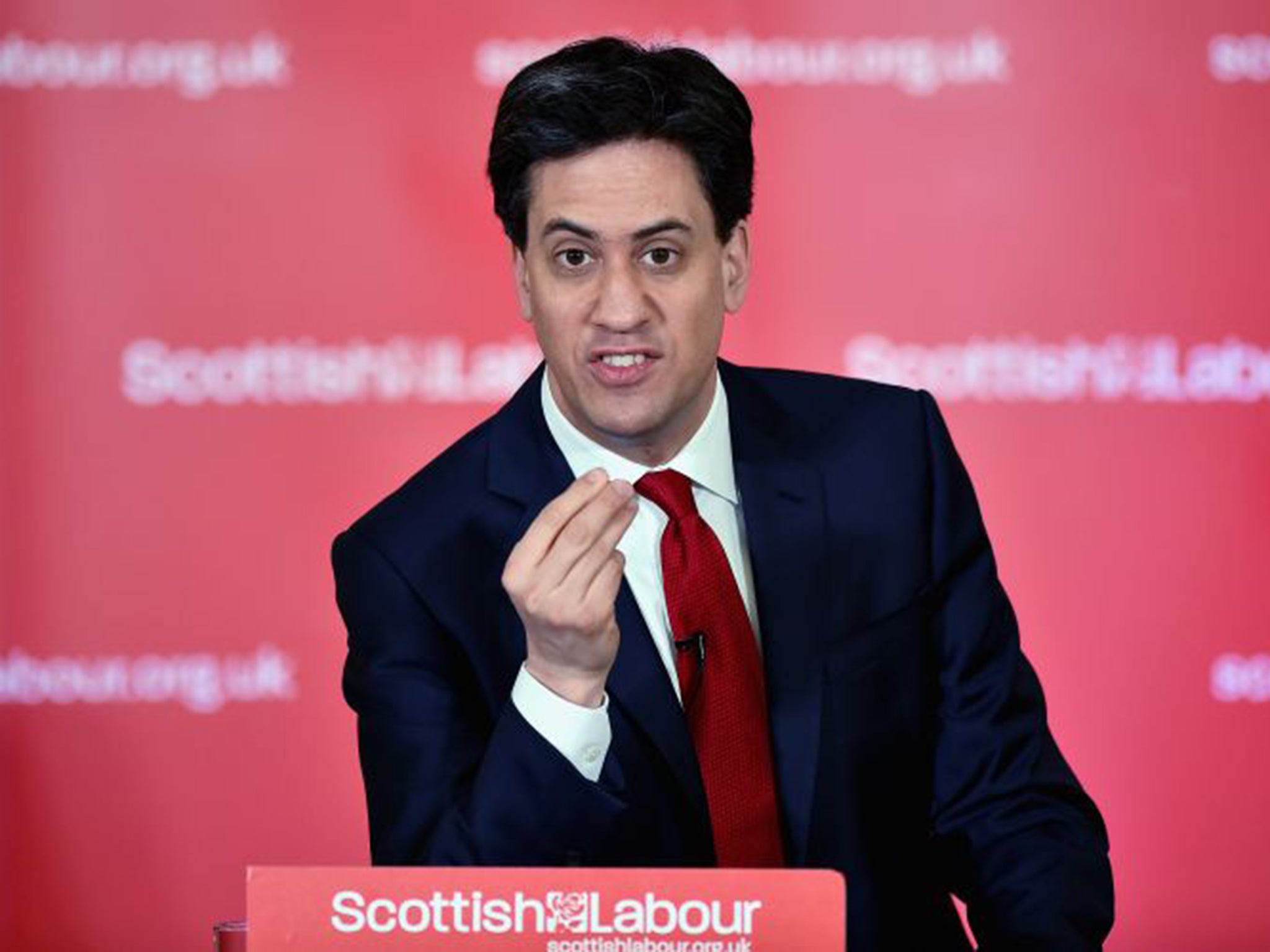Labour pledges not to raise VAT, heaping pressure on Tories
Mr Miliband has accused the Tories and the SNP of an ‘unholy alliance’

Your support helps us to tell the story
From reproductive rights to climate change to Big Tech, The Independent is on the ground when the story is developing. Whether it's investigating the financials of Elon Musk's pro-Trump PAC or producing our latest documentary, 'The A Word', which shines a light on the American women fighting for reproductive rights, we know how important it is to parse out the facts from the messaging.
At such a critical moment in US history, we need reporters on the ground. Your donation allows us to keep sending journalists to speak to both sides of the story.
The Independent is trusted by Americans across the entire political spectrum. And unlike many other quality news outlets, we choose not to lock Americans out of our reporting and analysis with paywalls. We believe quality journalism should be available to everyone, paid for by those who can afford it.
Your support makes all the difference.Labour will fight the general election on a cast-iron promise not to raise VAT in an attempt to put the Conservatives – who have stopped short of such a pledge – under pressure on the issue.
Ed Balls, the shadow Chancellor, will announce tomorrow that the Labour manifesto will include a “clear pledge” not to increase VAT in the 2015-20 parliament. Speaking in Birmingham, he will say: “We will not put up VAT. And we will not extend it to food, children’s clothes, books, newspapers and public transport fares.”
George Osborne, the Chancellor, has insisted the Tories have no plans for any tax rises after the election. But Labour points out that the Tories made the same statement about VAT before the 2010 election, only for Mr Osborne to increase it from 17.5 to 20 per cent in 2011 to raise £13bn a year towards deficit-reduction.
The Tories accuse Labour of basing its May election campaign on two untrue “scare stories” – that a Cameron government would hike VAT and cut the NHS.
Mr Balls will say tomorrow: “We will not raise VAT because it’s the tax that hits everyone. It’s the tax that hits you every day. And it hits pensioners and the poorest hardest. That Tory VAT rise hit the living standards of millions of people. It led to higher prices for everyone – helping inflation hit 5.2 per cent when it was raised.”
The shadow Chancellor will add: “VAT is the tax that every Tory government in the last 40 years has raised. But no Labour government has ever hiked up the main rate of VAT.”
Yesterday, Ed Miliband tried to tackle the biggest threat to Labour’s election prospects – the surge by the Scottish National Party. Speaking in Clydebank, Scotland, he claimed there was an “unholy alliance” between the Tories and the SNP. Labour claims the Tories are raising the spectre of a Labour-SNP deal in a hung parliament to damage Labour in both Scotland and England. Labour’s private polls suggest that one in 10 of the Scots intending to back the SNP realises that doing so could put the Conservatives in power. The finding has raised Labour’s hopes of winning back some of the party’s former supporters who have stuck with the SNP since last September’s referendum on independence. Labour plans to to “turn” about half of these voters, which would greatly reduce Labour’s losses to the SNP.

Opinion polls suggest that Ed Miliband’s party could even change places with the SNP, which currently hold six of Scotland’s 59 parliamentary seats to Labour’s 41.
There is a fierce debate inside Labour about whether to go head-to-head with the SNP in being an “anti-austerity party.” Some Labour MPs want Mr Miliband to trumpet that their party could spend an estimated £30bn more than the Tories. But other Labour MPs are warning that such a boast would cost votes in England. One Labour source said: “It might help us in Scotland, but it would kill us in England.”
Mr Miliband said yesterday: “Every vote in this election that might allow the Tories to be the largest party is a vote for Tory austerity to continue.”
An ICM survey for The Guardian put the SNP on 43 per cent, Labour on 27 per cent, the Conservatives on 14 per cent and the Liberal Democrats on 6 per cent. If these figures were repeated in the May election on a uniform swing, the SNP would win 43 seats and Labour 12. The Liberal Democrats would see their 11 MPs in Scotland reduced to three, while the Tories would retain their single MP.
Join our commenting forum
Join thought-provoking conversations, follow other Independent readers and see their replies
Comments